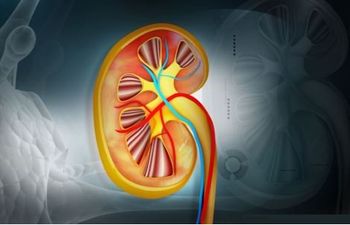
Joleen Hubbard, MD, explains why allowing access to results can improve patient’s outlook on treatments and understanding of their disease.

Your AI-Trained Oncology Knowledge Connection!


Joleen Hubbard, MD, explains why allowing access to results can improve patient’s outlook on treatments and understanding of their disease.

The European Medicines Agency will begin a centralized review process for subcutaneous nivolumab across multiple solid tumor indications.

Golidocitinib monotherapy had a superior clinical benefit in patients with relapsed/refractory peripheral T-cell lymphoma vs existing treatments.

Compared with cognitively-defined and hemigland contours, AI-assisted cancer contours delivered a greater balanced accuracy rate.

Data from CAPItello-291 support the approval of capivasertib/fulvestrant for ER-positive, HER2-negative breast cancer in the European Union.

A minimally invasive cryoablation technology system designed to treat patients with kidney tumors and elicit an 89.65% recurrence-free rate.

Findings from a retrospective study showed that outpatient robotic hepatectomies resulted in no mortalities across 307 procedures.

Data from the REVEAL study affirm elevated white blood cell counts and higher variant allele frequency as risk factors for progression in polycythemia vera.

Phase 1 data show no dose-limiting toxicities with sonrotoclax plus zanubrutinib for patients with relapsed/refractory CLL or SLL.

Data from the phase 3b JUMP trial support the use of ruxolitinib in myelofibrosis regardless of baseline or treatment-related anemia.

Capivasertib's safety profile in the CAPItello-290 trial was comparable with prior reports of the agent in advanced triple-negative breast cancer.

Carey K. Anders, MD, spoke about updated findings in the HER2-positive breast cancer space, based on data from 2023 SABCS.

Progression-free survival and overall survival appear to be shorter in patients with TP53-mutant CLL vs those with TP53 wild-type disease.

Misako Nagasaka, MD, PhD, discussed the approval of amivantamab plus chemotherapy for patients with EGFR exon 20 insertion mutations non–small cell lung cancer.

Four trajectories of change were identified in FACT-PWB score, with large patient groups experiencing little to no change or slight declines in PWB.

A trial for BNT326/YL202 in EGFR-mutated NSCLC or HR-positive HER2-negative breast cancer has paused enrollment due to a large illness or injury risk.

The novel antibiotic lock solution Mino-Lok could help treat catheter-related infections that patients with cancer may experience.

Data from the phase 3 PALOMA study showed subcutaneous amivantamab had comparable ORR to intravenous administration for patients with EGFR-mutated NSCLC.

Phase 1/2 data highlight the benefit of linvoseltamab even among prespecified high-risk patient subgroups with relapsed/refractory multiple myeloma.

Additional analyses of patient-reported outcomes and MRD status in the QuANTUM-First trial are also ongoing, says Harry P. Erba, MD, PhD.

Patients with primary advanced/recurrent endometrial carcinoma may now receive pembrolizumab plus chemotherapy as indicated by the FDA.

A cohort study of the KarMMa-2 trial found durable responses in patients with high-risk multiple myeloma treated with ide-cel.

UGN-102 also demonstrated a 79.6% complete response rate at 3 months in the phase 3 ENVISION trial.

The likelihood of response was also higher in patients who received no more than 3 lines of therapy prior to liso-cel in the TRANSCEND CLL 004 trial.

Tammy McClellan, PharmD, discusses the use of amivantamab plus chemotherapy in patients with non–small cell lung cancer harboring EGFR exon 20 insertion mutations.

Overall survival data with blinatumomab in the phase 3 E1910 study may be an “important development” in CD19-positive B-ALL.

Neil M. Iyengar, MD, and Paolo Tarantino, MD, discuss updated data on agents such as T-DXd and abemaciclib in breast cancer presented at 2024 ASCO.

Intraoperative radiation therapy may allow surgical and radiation oncologists to collaboratively visualize at-risk areas in patients with cancer.

During a Training Academy focused on first-line treatment use in non–small cell lung cancer, panelists discussed a patient case and how they would treat that patient in the setting.

Treatment with zanubrutinib (Brukinsa) was found to have cost savings and quality-adjusted life year benefits compared with acalabrutinib (Calquence) in patients with B-cell malignancies.